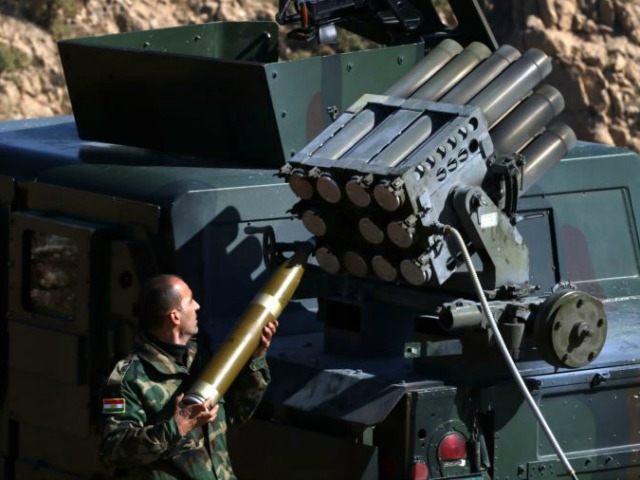Russian Foreign Minister Sergei Lavrov confirmed Russia sent weapons to the Iraqi Kurds to fight against the Islamic State (ISIS/ISIL).
“We took into account the Kurds’ needs in the supplies of our arms to Iraq, but these supplies were made through the central government, through Baghdad,” he commented. “We fully respect the sovereignty and territorial integrity of Iraq.”
The Kremlin sent these weapons “practically as soon as the terrorist threat emerged.” Those in Erbil, the capital of Iraqi Kurdistan, believe the process is “counterproductive” and does not allow their officials to choose which weapons to buy.
The announcement of Russian aid to Erbil follows months of the Kurdistan Regional Government requesting extra weapons aid for the Peshmerga, its military wing, who are on the front lines against the Islamic State. While the United States has provided some weapons, officials have dismissed the aid as “not even close to what we were asking for.”
That could change as Iraqi Kurdish leaders announced an independence referendum in November.
2016 marks the 100th anniversary of the Sykes-Picot Agreement, which shaped the Middle East after the fall of the Ottoman Empire. It also left the Kurds without a state. They are currently semi-autonomous but rely on Baghdad. Some Kurds believe independence would help the region.
“Our economic situation gets worse and worse day by day, and one day we will all go bankrupt,” said shop owner Didar Younis. “All the blame must be put on Baghdad because they cut off our national budget. … Independence will solve all the trouble we have been facing. The KRG should decide and declare independence. We need separation from Baghdad.”
Lavrov also suggested the United Nations Syrian envoy decide if the Syrian Kurds should join the peace talks in an effort to end the civil war.
He promised Russia would not veto their decision.
“It will be the most serious mistake not to invite Kurds (for inter-Syrian talks), but we will not impose any veto,” he continued. “This is the right of Staffan de Mistura. The UN Syria envoy should be aware of his responsibility and should not shelter himself behind Russia and the United States.”
Turkish Prime Minister Ahmet Davutoğlu agreed the UN should invite the Syrian Kurd group Democratic Union Party (PYD), but not other groups.
“We want Syrian Kurds around the Geneva table. The peace process won’t be complete [if they aren’t present],” he explained. “But we cannot accept the YPG [People’s Protection Units]. It is an extension of the PKK [Kurdistan Workers’ Party].”
The Turkish government and Iraqi Kurds maintain an amicable relationship, unlike the Syrian Kurds. Russia began airstrikes against Syrian rebels on September 30, but the Turkish government warned the Kremlin and the U.S. not to arm the Syrian Kurdish forces.
“No one can guarantee that arms given to the PYD today, won’t tomorrow fall in the hands of the PKK and used against Turkey,” Davutoğlu stressed at the time. “Turkey cannot accept any kind of cooperation with terror organizations that have declared war against Turkey.”
The fighting between Turkish forces and Kurdish factions escalated over the summer, when the government joined the coalition against the Islamic State (ISIS/ISIL). The outlawed PKK and its allies claimed Turkey used it as an excuse to target them. Evidence showed Turkish forces bombed areas in northern Iraq, miles away from the designated ISIS targets in Syria.
The PKK is a Marxist-Leninist group and designated a terrorist organization by the U.S., EU, and NATO.
The fighting ended a two-year truce as both sides continued their 30-year war. The PKK officially terminated its ceasefire with Turkey after President Recep Tayyip Erdoğan’s Justice and Development (AKP) Party swept parliamentary elections.
“The unilateral state of inaction has ended due to the AKP (Justice and Development Party) government’s latest attacks,” declared the organization. “After the election, the AKP has demonstrated it is going to be a war government.”

COMMENTS
Please let us know if you're having issues with commenting.